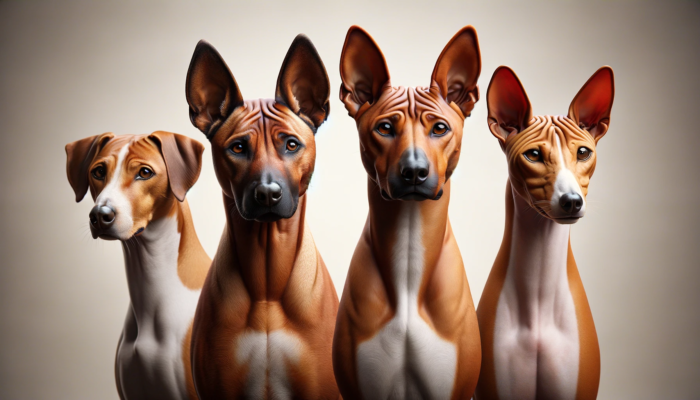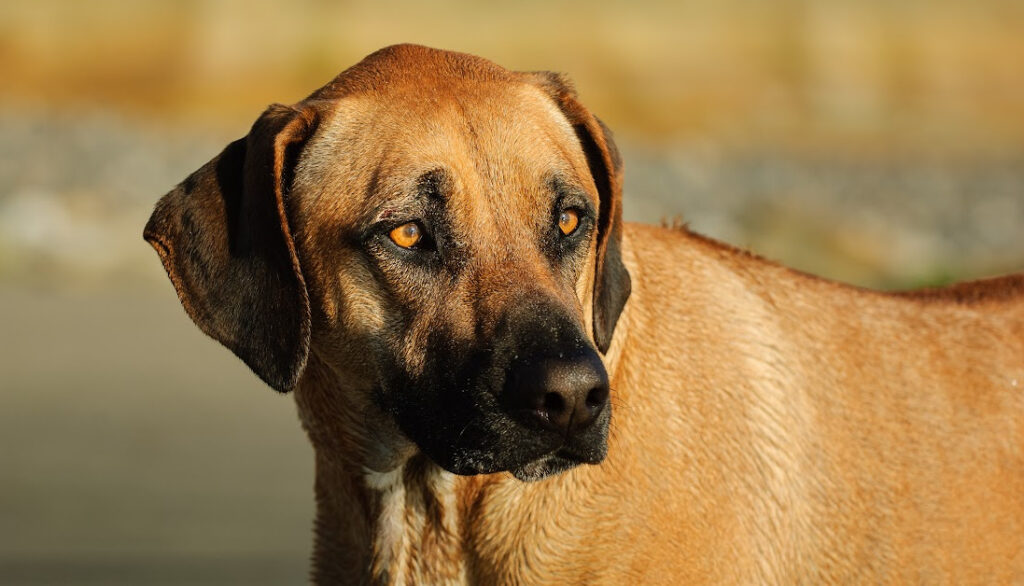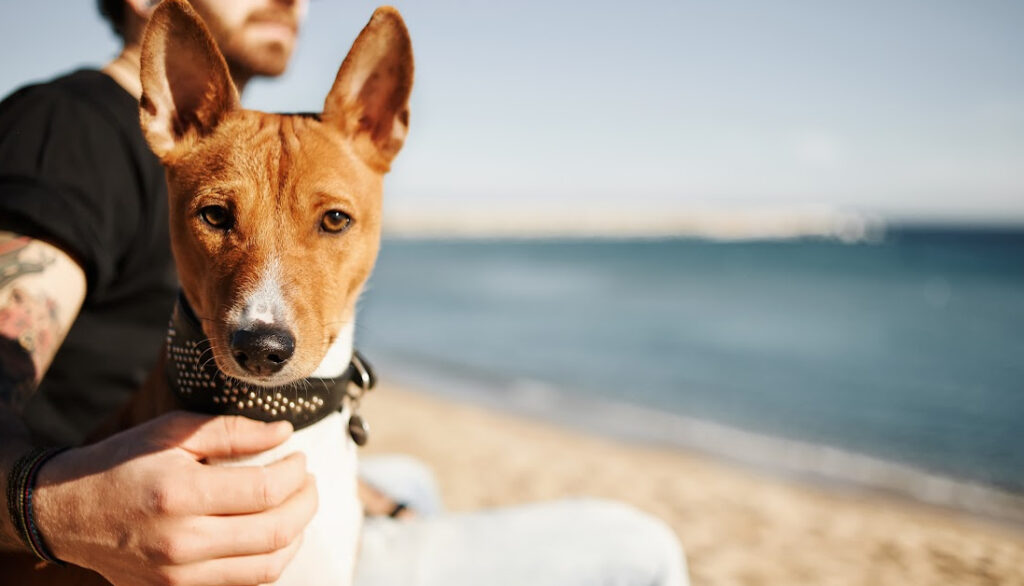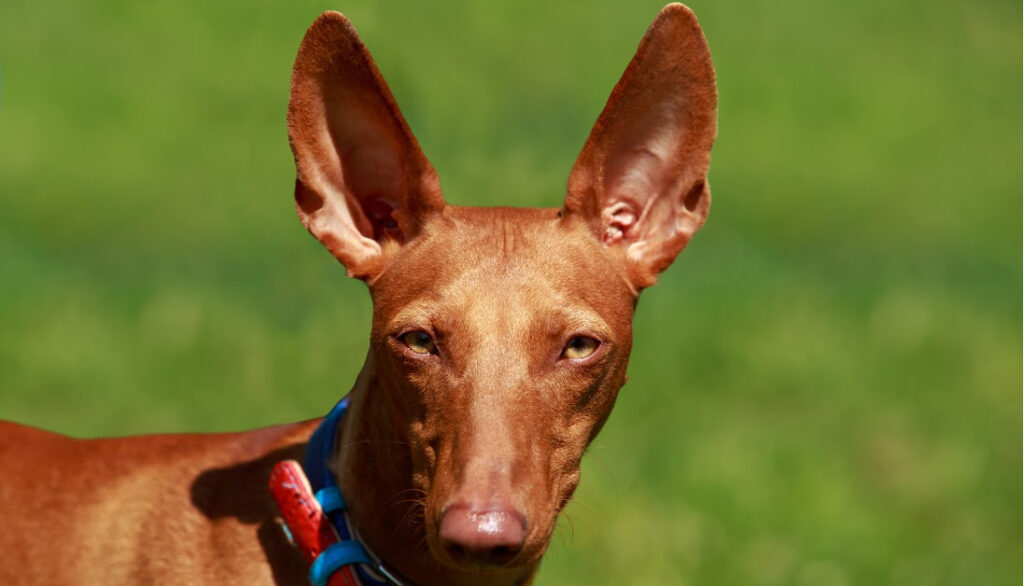As a holistic veterinarian with a passion for canine diversity, I’m thrilled to take you on a journey to discover the rich and diverse heritage of 13 African dog breeds. Africa is a continent of incredible diversity, not just in its landscapes and people, but also in its canine lineage. From the great deserts of the North to the tropical rainforests of the Equator and the vast savannahs of the South, dogs have played a vital role in the lives of African people for thousands of years.

Recognizing African dog breeds is crucial not only for understanding the history of our beloved four-legged friends but also for appreciating the significant role these dogs have played in diverse African cultures. They have been hunters, herders, protectors, and companions, each breed uniquely shaped by the demands of their environment and the humans they lived with.
The evolution of African dog breeds is a fascinating narrative of adaptation and survival. Over time, these breeds have developed common traits and adaptations to survive in the challenging African climate and terrain. From the ridge on the Rhodesian Ridgeback’s back, which was believed to help them fight lions, to the remarkable survival instincts of the Africanis, these dogs have evolved to thrive in their African homes.
My hope is that this exploration not only broadens your knowledge of the wonderful world of dogs but also deepens your appreciation for the incredible African dog breeds that have been our companions for millennia.

Historical Significance of African Dogs
Unleash your imagination and venture with me on a journey to ancient Africa, where the bond between humans and dogs was woven into the very fabric of society. Dogs were not merely pets; they were hunters, protectors, companions and, in some cases, held deeply spiritual significance. This rich tapestry of relationships and roles gave birth to some of the most unique and captivating dog breeds we know today.
The Role of Dogs in African Culture and Society
Like many ancient cultures, dogs in Africa held crucial roles that extended beyond mere companionship. In numerous African societies, dogs were invaluable allies in hunting and herding, their keen senses and agility making them indispensable partners. The Rhodesian Ridgeback, for instance, was specifically bred for its courage and tenacity in lion hunting.
But the significance of dogs in Africa transcended practicality. In ancient Egyptian society, dogs were often sacred, associated with the gods. The Egyptian Pharaoh Hound, a breed believed to be thousands of years old, was considered a divine entity. Meanwhile, in some southern African cultures, the native Africanis was deeply integrated into tribal spiritual beliefs and rituals.
African dogs were also seen as protectors. They guarded homes, cattle, and even children. Their keen sense of smell and hearing, speed, and courage made them effective defenders against predators and intruders.
Evolution of African Dog Breeds Over Time
African dog breeds have evolved immensely through time, shaped by Africa’s diverse climates and terrains, and the specific needs of the people they lived with.
Take the Basenji for example. Known as the ‘barkless dog,’ this breed from the Congo developed a unique yodel-like sound, possibly an adaptation to dense jungle environments where a regular bark would be muffled. This distinct vocalization gave the Basenji an edge in communication, both with humans and other dogs.
Meanwhile, the Coton de Tulear from Madagascar evolved as a companion dog. They were favored by the nobility, and their sociable, adaptable nature is a testament to their history as prized lap dogs.
Over countless generations, African dog breeds have been naturally selected and intentionally bred for their unique traits. From the lean, muscular body of the Rhodesian Ridgeback, perfect for endurance hunts, to the heat-resistant coat of the Pharaoh Hound, each breed carries the imprint of its unique history and cultural context.
Exploring the history of these breeds is like unravelling a rich tapestry of African heritage, human-dog relationships, and survival in one of the world’s most diverse continents. Each of these 13 African dog breeds carries within them a slice of history, a chapter of the African narrative that continues to evolve and endure. So the next time you meet one of these breeds, remember, you’re not just looking at a dog, but a living testament to the rich canine heritage of Africa.
Common Traits Among African Canines
When it comes to African dog breeds, there are several traits that most have in common. Firstly, many African dog breeds are known for their endurance and agility. This makes sense when you consider that many of these breeds were developed in environments where they needed to be able to cover large distances, often in harsh conditions.
Another common trait is their independence. Many African dog breeds were bred to work independently from humans, making decisions on their own while out in the field. This independence can make them more challenging to train than some other breeds, but it also makes them incredibly resourceful and adaptable.
Lastly, African dog breeds are often very loyal and protective of their families. This is likely a result of their historical roles as hunters and protectors of their human companions. Their loyalty and protective instincts make them excellent family pets, but they can be wary of strangers and may require socialization from a young age.
Adaptations to the African Climate and Terrain
Africa’s climate and terrain vary greatly, from hot deserts to lush rainforests, and African dog breeds have developed unique adaptations to survive in these diverse environments. For instance, many African breeds have a short, thin coat that helps keep them cool in hot, arid climates. Their lean bodies and long legs are also well-suited for travelling long distances in search of food or during hunting expeditions.
Many of these breeds also have large, erect ears, which serve a dual purpose. Not only do they help dissipate heat, but they also enhance their hearing, making it easier for them to detect potential prey or threats in their environment.
African dogs are often equipped with strong jaws and sharp teeth, adaptations for their historical roles as hunting dogs. Their robust physiology helps them tackle prey, often larger than themselves, and defend their territories from predators. This coupled with their high intelligence and problem-solving skills make them excellent survivors in some of the world’s toughest environments.
In conclusion, African dog breeds are as diverse and unique as the continent itself. From the barkless Basenji to the lion-hunting Rhodesian Ridgeback, these dogs have evolved over centuries to become perfectly adapted to their environments. Their common traits and unique adaptations are a testament to the rich canine heritage of Africa.
The Basenji: Congo’s Barkless Dog
Believed to have originated from central Africa, particularly Congo, the Basenji breed is one of the most unique African dog breeds. Their most distinctive feature is their inability to bark. Instead, they produce unique vocal sounds, commonly described as ‘yodels’. Known for their intelligence and independence, Basenjis are small to medium dogs, characterized by their short hair, erect ears, tightly curled tail, and expressive eyes.
Although they are not the best choice for first-time dog owners due to their stubbornness, Basenjis make excellent companions for those who appreciate their quirks. They require a lot of exercises and mental stimulation to keep them happy and healthy. They are also known for their cleanliness and lack of doggy odor, adding to their appeal.
The Rhodesian Ridgeback: The Lion Hunter of Southern Africa
The Rhodesian Ridgeback is a renowned breed hailing from Southern Africa, specifically Zimbabwe, which was formerly known as Rhodesia. This breed is best known for its courage, agility, and strength, characteristics that made them excellent lion hunters in the past.
The distinguishing feature of this breed is the ‘ridge’ of hair growing in the opposite direction along their back, hence the name ‘Ridgeback’. They are large dogs, muscular and athletic, with a short and sleek coat. Their loyalty, intelligence, and protective nature make them excellent family dogs.
Despite their hunting heritage, Rhodesian Ridgebacks are generally sociable and gentle and do well in homes where they are given plenty of exercises and love. They can be quite reserved with strangers, but with proper socialization, they can be friendly and well-rounded dogs.
The Egyptian Pharaoh Hound
The Egyptian Pharaoh Hound, known in Maltese as the Kelb tal-Fenek, is a breed steeped in history and believed to be one of the oldest dog breeds in existence. These dogs bear a striking resemblance to the dogs represented in ancient Egyptian artwork, leading many to believe they are the descendants of those ancient hounds.
Pharaoh Hounds are known for their agility, speed, and hunting prowess. They are medium-sized dogs with a short, glossy coat, usually in shades of tan or chestnut. One of their most captivating features is their large, expressive ears.
In temperament, they are friendly, intelligent, and playful. They require plenty of exercises and do well in families where they receive lots of attention and stimulation.
The Coton de Tulear: Madagascar’s Companion Dog
Originally from Madagascar, the Coton de Tulear is a small breed named after the city of Tulear in Madagascar. This breed is well-known for its fluffy, cotton-like coat, from which it derives its name (‘Coton’ is French for cotton).
They are small, sturdy dogs, characterized by their long, thick, and soft white coat. Cotons are known for their cheerful and sociable disposition. They are intelligent, easy to train, and make excellent family pets.
Although their coats require regular grooming to prevent matting, they are hypoallergenic, making them a good choice for those with allergies.
The Africanis: South Africa’s Indigenous Dog
The Africanis is a breed indigenous to South Africa, where it plays a vital role in rural communities. These dogs are descendants of the original domestic dogs of Africa and have adapted to survive the harsh African environment.
Africanis dogs are medium-sized, muscular, and robust, with a short coat that can come in various colors. They are known for their agility, strength, and endurance. Despite their rugged exterior, Africanis dogs are very loyal and protective, making them excellent watchdogs.
They require minimal grooming and are generally healthy dogs, capable of withstanding various climates and conditions. As they are highly active dogs, they need plenty of exercises and thrive in homes with large outdoor spaces.

The Egyptian Pharaoh Hound: An Ancient Breed with a Royal Legacy
If you’re a dog lover with a penchant for history, you’ll be intrigued by the Egyptian Pharaoh Hound. This dog breed is deeply rooted in the history of ancient Egypt, and it’s often associated with the nobility and royalty of the time.
The Pharaoh Hound is believed to be one of the oldest domesticated dog breeds in the world. They were depicted in numerous Egyptian artifacts and tomb paintings dating back to 4000 BC, showing their significance in Egyptian society. These dogs were highly esteemed and often seen alongside pharaohs, indicating their royal status.
In ancient times, the Pharaoh Hound was used for hunting. They were excellent at tracking and chasing down game, making them valuable assets to the Egyptian society. Today, these dogs are still known for their agility and speed, which are remnants of their hunting days.
The Pharaoh Hound’s Distinctive Appearance and Temperament
The Pharaoh Hound is a medium-sized dog with a lean and muscular body, built for speed and agility. One of their most distinctive features is their large, expressive ears that stand erect. Their coat is short and glossy, typically in a rich tan or chestnut color.
In terms of temperament, the Pharaoh Hound is known for its intelligence, independence, and affectionate nature. They are friendly dogs that enjoy the company of their human families. However, they also have an independent streak, which can make training a bit challenging at times. Despite this, they are eager to please and can be trained with consistent, positive reinforcement methods.
One unique characteristic of the Pharaoh Hound is its ability to blush. Yes, you read that right! When they’re excited or happy, their ears and nose can turn a warm, rosy color. It’s a charming trait that adds to the allure of this ancient breed.
Caring for a Pharaoh Hound
Pharaoh Hounds are active dogs that require regular exercise to keep them physically and mentally stimulated. They enjoy activities like running, playing fetch, and agility training.
As for their diet, they do well on high-quality dog food, whether commercially manufactured or home-prepared. However, it’s essential to monitor their calorie consumption and weight level, as they can be prone to obesity.
When it comes to grooming, the Pharaoh Hound is relatively low maintenance. Their short coat only requires occasional brushing to keep it looking its best. Regular check-ups and vaccinations are also important to ensure your Pharaoh Hound stays healthy.
In summary, the Egyptian Pharaoh Hound is a remarkable breed with a rich history and unique traits. If you’re looking for a loyal, intelligent, and energetic dog with a touch of royal flair, the Pharaoh Hound could be the perfect addition to your family.
The Coton de Tulear: Madagascar’s Companion Dog
As we continue our exploration of African dog breeds, let’s take a moment to highlight a breed that hails from the island nation of Madagascar – the Coton de Tulear. Known for its fluffy, white, cotton-like coat, this breed has a unique history and charm that’s captured hearts all over the world.
Origins and History of the Coton de Tulear
The Coton de Tulear is named after the city of Tulear in Madagascar, where the breed originated. They were primarily kept by nobles and royals and were considered a symbol of wealth and power. It’s thought that the breed descended from dogs who survived shipwrecks in the Madagascar area, swimming to shore and breeding with local dogs.
The Coton de Tulear was recognized by the Madagascar government as a national breed in the 1970s. From there, it spread across Europe and eventually made its way to America in the 1980s. Today, this breed is beloved for its fun-loving character and its uniquely beautiful coat.
Characteristics and Care of the Coton de Tulear
The Coton de Tulear is a small breed, typically weighing between 8 to 15 pounds and standing about 9 to 12 inches tall. Their most striking feature is their soft and fluffy coat, which often leads them to be compared to walking cotton balls. The coat requires regular brushing to keep it free of tangles and mats.
- Temperament: The Coton de Tulear is known for its friendly and sociable nature. They are extremely loyal to their families and get along well with other pets and children. They are also known for their intelligence, making them relatively easy to train.
- Exercise: This breed is moderately active. They require daily walks and playtime to keep them healthy and happy. They also enjoy games and interactive toys.
- Health: Generally, the Coton de Tulear is a healthy breed. However, like any breed, they can be prone to certain genetic health issues. Regular vet check-ups and a balanced diet can help ensure your Coton stays healthy.
Caring for a Coton de Tulear requires time and commitment, particularly when it comes to maintaining their coat. Despite this, their charming personalities and lovable nature make the effort more than worth it. If you’re considering adopting a Coton de Tulear, be prepared for a dog that will bring great joy and companionship to your life.
Remember, each dog breed has unique needs and characteristics. Understanding these is the first step to ensuring a happy and healthy environment for your furry friend. So, whether you have a Coton de Tulear, a Rhodesian Ridgeback, or any other African dog breed, being an educated and caring dog parent is the most important role you can play.

The Africanis: South Africa’s Indigenous Dog
A unique and fascinating breed among African dog varieties is the Africanis. As we delve deeper into the rich canine heritage of Africa, we cannot overlook this indigenous South African breed.
The Africanis’ Role in Rural African Communities
The Africanis is not just a dog breed; it is a cultural icon that plays a pivotal role in rural African communities. For centuries, they have been the trusted guardians of livestock, valuable hunting partners, and loved family companions.
Their ability to survive in harsh conditions coupled with their strength and agility has made them invaluable assets in rural African societies. They are fiercely loyal and extremely protective of their human families, often functioning as alarm systems and deterrence against wild animals and intruders.
These dogs are also known for their superior herding abilities, often used to control and protect livestock. Their intelligence and sharp instincts make them perfect for this role. The Africanis has a distinct place in the hearts of the people, celebrated in local folklore and customs.
Understanding the Africanis’ Survival Instincts
What makes the Africanis stand out among the 13 African dog breeds is its incredible survival instincts. Adapted to the arduous African climate and terrain, these dogs have developed unique survival strategies that have ensured their existence for centuries.
They are naturally athletic, equipped with a lean and muscular body. This gives them the endurance to work tirelessly in the hot African sun. They have a short, dense coat that provides protection from the sun and aids in regulating their body temperature.
The Africanis exhibits an uncanny ability to fend for itself when food is scarce. They are excellent scavengers, utilizing their keen sense of smell to locate food. This breed has a robust digestive system, capable of digesting food that many other dog breeds cannot handle.
These dogs are also known for their remarkable disease resistance. Their genetic diversity and natural selection have led to a breed that is less prone to typical canine diseases.
The Africanis is a true testament to the resilience and adaptability of African canines. Their survival instincts and vital role in rural African communities make them a crucial part of Africa’s canine heritage.
In order to ensure the survival of this breed, it is vital to recognize and protect the Africanis, and other indigenous African dog breeds, for future generations. By understanding their unique characteristics and value in their native societies, we can better appreciate the rich and diverse canine heritage that Africa has to offer.
Protecting and Preserving African Dog Breeds
Conservation Efforts for Rare African Breeds
As we take a leap forward towards modern society, the untouched heritage of African dog breeds is at a greater risk than ever before. Some of the rare breeds like the Africanis, Azawakh, and Sloughi are facing the risk of extinction due to the lack of recognition and unsuitable breeding practices.
Conservation efforts to protect these unique breeds are vital. Several animal rescue organizations and conservationists are now working towards the preservation of these breeds. The Africanis Society of Southern Africa, for instance, is working tirelessly to recognize the Africanis as a breed and protect it from possible extinction.
Efforts include breeding programs that aim to maintain the genetic diversity and uniqueness of these breeds. The idea is not just to increase their numbers but to ensure that the distinctive characteristics of these African dog breeds remain intact.
The Future of African Dog Breeds in Modern Society
As we have explored the various African dog breeds and their significant roles in African culture and society, it’s evident that they hold an essential place in the world’s canine scenario. However, the journey ahead is not without challenges.
In the face of rapid urbanization and the growing popularity of exotic breeds, the future of African dog breeds hinges on our actions today. In addition to conservation efforts, raising awareness about these breeds, their history, and their roles is crucial.
Embracing these breeds is about more than preserving genetic diversity; it’s about acknowledging and respecting the rich tapestry of life that makes up our world.
Every dog breed has a story to tell, a role they were bred for, traits that have helped them survive and adapt. African dog breeds are no different. They have survived harsh climates, fulfilled roles as hunters, guards, and companions, and have done so with a grace and resilience that is truly inspiring.
So, let’s cherish them, protect them, and most importantly, let’s learn from them. After all, dogs are not just our best friends; they are also our oldest companions, walking with us through the annals of human history, always loyal, always loving. Let’s ensure the tale of African dog breeds continues to be a part of this incredible journey.
Frequently Asked Questions
Q1: What are some popular African dog breeds?
A: Some popular African dog breeds include the Basenji, Rhodesian Ridgeback, Africanis, Boerboel, and the Egyptian Pharaoh Hound.
Q2: Are African dog breeds suitable for families with children?
A: Yes, many African dog breeds are known for their loyalty, protective nature, and affection towards their families, making them suitable for families with children. However, it’s always important to consider the specific breed and individual dog’s temperament.
Q3: How do I care for an African dog breed?
A: Care for an African dog breed can vary depending on the specific breed. However, most require regular exercise, a balanced diet, regular vet check-ups, and plenty of social interaction.
Q4: Are African dog breeds easy to train?
A: This can depend on the specific breed. Some African dog breeds, like the Basenji, are known for their independence and can be more challenging to train. Others, like the Rhodesian Ridgeback, are known for their intelligence and can be easier to train with consistent, positive reinforcement methods.
Q5: Are African dog breeds hypoallergenic?
A: No specific dog breed is completely hypoallergenic, including African dog breeds. However, some breeds may cause fewer allergy symptoms than others. It’s always best to spend time with a breed before bringing it into a home with allergy sufferers.
Dr. Candy, a holistic veterinarian and certified raw dog food nutrition specialist, graduated from Oklahoma State University in 2009 with a DVM and has since specialized in companion animal nutrition, advocating for species-specific diets. With a background in wildlife rehabilitation and oil spill response, she combines holistic health and conventional medicine in her unique approach to treating chronic diseases, allergies, and autoimmune conditions in pets. As the owner of a veterinary practice in Colorado and an author, Dr. Candy is dedicated to educating pet parents and improving the health and happiness of animals.




